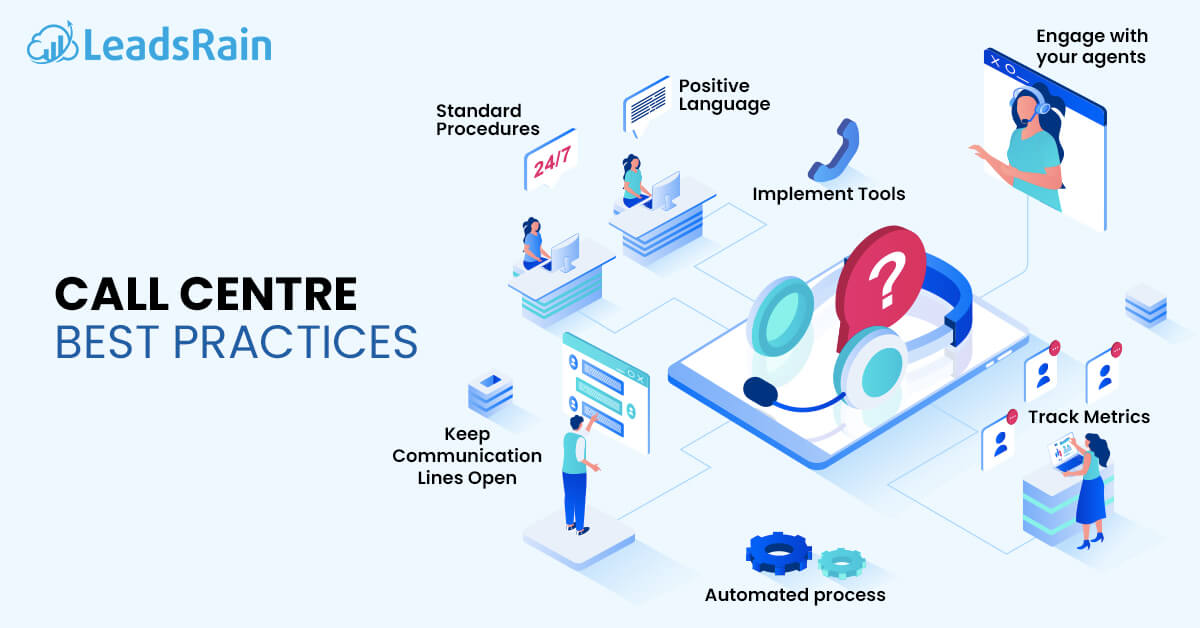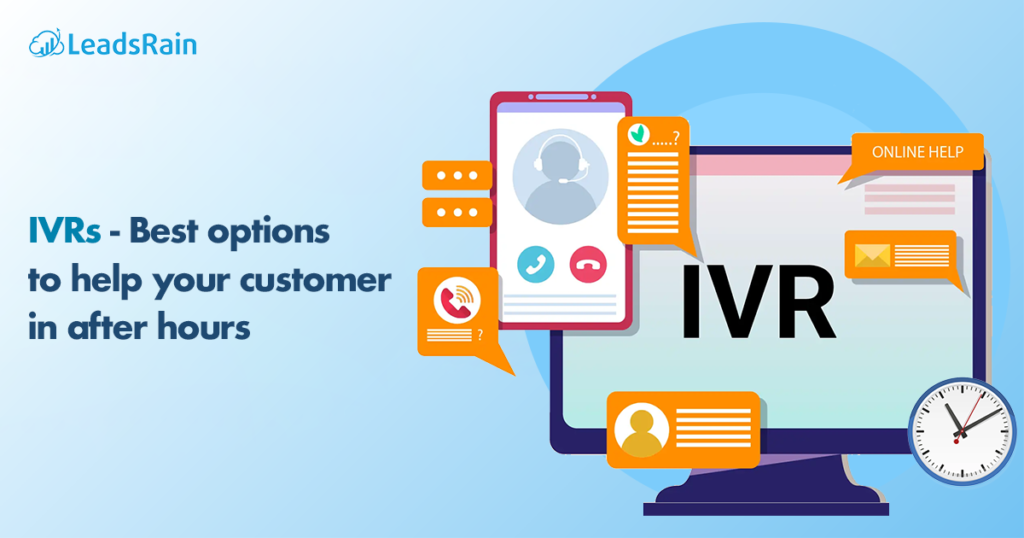Contact centers are a crucial part of businesses across many sectors. They are essential to lead generation, sales, and online customer care. However, despite playing a crucial role in interacting with customers, they usually fall short of fulfilling customer expectations.
A startling 84% of consumers said that during their most recent connection with a contact center, their expectations for customer care were not reached. Additionally, 67% of customers find the phone systems in call centers annoying, which leads them to hang up before speaking to a live agent.
It is obvious that both the effectiveness of call centers and the customer service they offer may be improved.
However, if other contact centers are falling short in this regard, there may be a chance for you to stand out and earn a competitive advantage. So what is the most effective technique to lead the pack and guarantee success?
In this article, we will look at a few most important practices that help you manage your call center more effectively and efficiently. Let’s take a look at it.
What is Call Center Software?
Call center software is a communication solution designed to help businesses manage inbound and outbound calls efficiently. The software typically includes features such as automatic call distribution (ACD), call routing, call recording, and real-time analytics to enable businesses to handle high volumes of calls, route calls to the right agent, and monitor agent performance in real time.
Call center software can help businesses improve customer experience by providing prompt and efficient service. Additionally, the software can help businesses increase their productivity and efficiency by automating routine tasks, such as call routing and data entry, and providing agents with real-time access to customer data. With call center software, businesses can optimize their operations, reduce costs, and improve their bottom line by providing customers exceptional service and support.
In summary, call center software is a communication solution that helps businesses manage inbound and outbound calls more efficiently. It provides businesses with various tools to handle high volumes of calls, route calls to the right agent, and monitor agent performance. By implementing call center software, businesses can improve their customer experience, increase productivity and efficiency, and ultimately improve their bottom line.
12 Call Center Quality Assurance Best Practices to Amplify Operations
1. Evaluate Agents Through a Systematic Interview Process
Since they are the ones who interact with customers first, agents are the center of any call center. As a result, it’s critical to select employees who will represent the firm well, inspire other employees, and foster performance that will contribute to corporate expansion.
Implementing a “competency-based approach” to customer service interview questions, which entails holding an assessment center for new hires, is something we advise. In essence, this structured interview process gives hiring managers a chance to choose the top performers from the group and train them all at once to become new call center agents. A group of candidates can complete tasks and assessments as part of this process.
2. Use Call Monitoring and Scoring
Managers should focus on the best ways to facilitate continuous agent support, growth, and training after the agent interview and selection process. In order to provide managers with unbiased feedback and enhance agent performance, quality monitoring tools, such as conversation analytics and speech analytics, automatically monitors and score each and every call. Forms for call score evaluations can also be useful for improving quality control inside the call center.
3. Effective Agent Communication
Managers and supervisors must remember to schedule individualized coaching sessions with agents ahead of time in addition to call monitoring and call center scorecards. The benefits are twofold: Managers can discuss ways to boost agent performance, while agents can express their opinions and impressions of their work.
One best practice advocated by experts is for the agent to talk about their perceived strengths and limitations in coaching sessions. When there is two-way communication, coaching becomes more collaborative. Giving the agent a sense of empowerment and ownership over their performance is frequently more effective than traditional coaching techniques.
4. Use The Most Advanced Tools
Giving your workers the required resources will enable them to serve your customers with the utmost efficiency. Before spending money or committing to the call center tools and software that your employees will use every day, do some homework. When you choose your preferred tools and start using them, periodically check for updates to keep them current.
5. Put In Place Standard Operating Procedures
To ensure that your reps are always able to access clear standard operating procedures (SOPs), it is important to write down what is expected of them both on and off calls. Along with the call center’s growth or adjustments, these ought to evolve as well. Create a simple way for your reps to obtain this material and go through it once a year.
6. Set Realistic Goals and Metrics
Setting achievable goals and metrics is crucial to measuring the success of your call center. Identify key performance indicators (KPIs) such as average handling time, first call resolution, and customer satisfaction. Use these metrics to set performance targets for your agents and measure their performance regularly. This information can help you identify areas for improvement and make necessary changes to enhance your customer service.
7. Foster a Positive Work Environment
Creating a positive work environment can help boost employee morale, productivity, and job satisfaction. Provide your agents with the necessary tools and resources to do their jobs effectively. Ensure that your call center is well-equipped with comfortable furniture, adequate lighting, and an ergonomic workspace. Additionally, promote an open-door policy where agents can share feedback, suggestions, and concerns. Regular team-building activities can also help promote a positive work culture.
8. Keep Your Language Positive
Generally speaking, call center best practices involve writing a calling script that suggests using formal language, a cheery tone, and key phrases to leverage. It is also important to train agents to avoid specific words and linguistic patterns to prevent awkward interactions. Encourage contact center staff to utilize statements like, “I’m sorry, I’m not the best person to answer your question, but let me transfer you to our resident expert who will be with you in two minutes,” rather than saying, “I’m going to put you on hold.” Thank you for being patient.
9. Effective Agent Training
The most obvious best practice for call centers is probably effective training, although many firms could do better in this area. The cornerstone of your business is getting your agents trained to perform at a high level, so the training process as a whole needs to be handled carefully.
A typical six-week call center training program for new hires includes classroom instruction and practice calls with management. But training shouldn’t be thought of as a one-time event. Instead, to assist underperforming agents, add frequent coaching sessions into your operations.
Utilize the top agents’ finest strategies to raise the performance of the rest of the team. You can learn what language was used during successful conversations by using conversation analytics software that records every agent call. Use this essential knowledge to assist underachievers.
10. Provide a Career Progression Path and Describe It
Agents who believe they have limited career opportunities will be less motivated than those who can see a clear route for advancement within the company. Explain to agents how they can advance in their careers with your business and make sure they are aware of the changes that are waiting for top achievers.
11. Be Receptive To Market Changes
Be ready for industry norms to alter over time. Keep developing as a company and a call center. Consider switching to omnichannel cloud contact center solutions, for instance, if it will help your call center.
12. Automate Whenever Possible
Customers and your reps will benefit from the time saved by routing a call to the service agent skilled in dealing with certain client difficulties. Additionally, having a FAQ page on your website will reduce the number of calls, but when customers do call, make sure they don’t have to go through a lot of trouble to speak to a real person when automated.
Conclusion
You must adhere to this call center management best practices to build a call center or improve an existing one. The management of a group of call center workers and supervisors becomes simpler with these effective tactics in place, and customer happiness and business growth will rise.
Do you want to learn more about call center software and best practices? – Contact us at support@leadsrain.com or make an appointment with experts right now.




